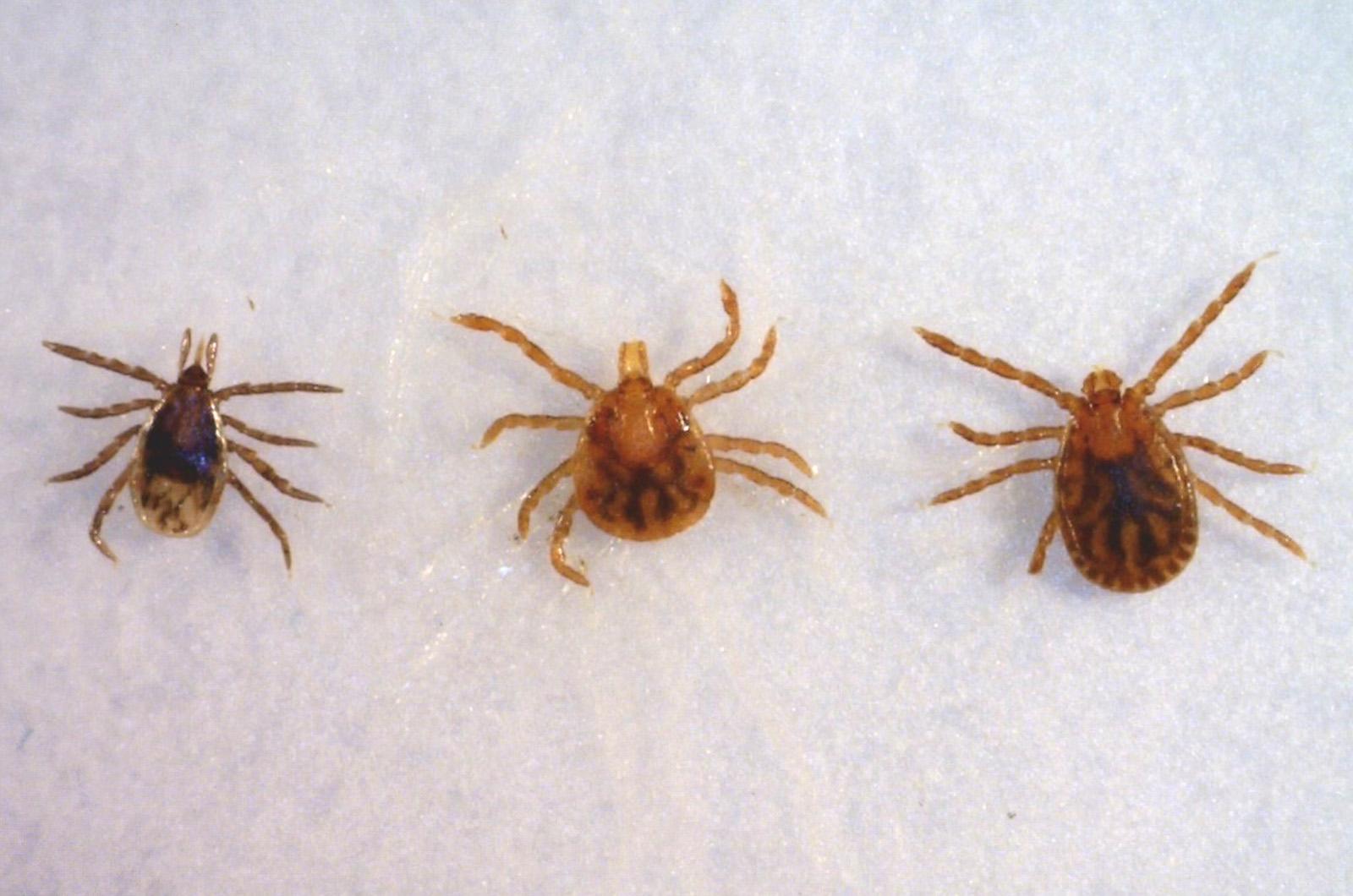A new species of invasive tick was discovered on Martha’s Vineyard for the first time this month, adding another arachnid to an Island already struggling with its overwhelming tick population.
Three Asian longhorned ticks were found during yard surveys in Aquinnah and Chilmark earlier in June, said Patrick Roden-Reynolds, the head of the Island tick-borne illness prevention program.
The species, which originates from Asia and was recently found on Nantucket, was first reported in the U.S. in 2017, but was never confirmed on the Vineyard until now. The females can lay thousands of eggs and reproduce without mating, allowing for populations to gain solid footholds quickly.
But Mr. Roden-Reynolds said it’s important to note that the species largely stay away from people and stray more toward animals.
“They’re not really known to bite humans,” he said. “Deer ticks and lone star ticks are still the big concern.”
The Martha’s Vineyard Tick Prevention Program discovered the Asian longhorned ticks during routine surveys of private yards. Two nymphs were found in a Chilmark yard on June 7, and a third nymph was found in Aquinnah last week.
The initial ticks were sent to the tick lab at Tufts University run by Sam Telford. Mr. Telford gave a talk about ticks earlier this month and confirmed they were Asian longhorned ticks.
Research into the species habits in the U.S. is ongoing, but the U.S. Centers for Disease Control and Prevention said a recent study found that the ticks were not likely to contribute to the spread of Lyme disease.
The ticks have spread germs via bites in other countries, but reported incidences are rare.
“They are not a major concern as of now,” Mr. Roden-Reynolds said. “They just don’t often bite humans.”
Farmers and owners of livestock should be on the lookout, though. The Asian longhorned tick is known to start infestations into the hundreds on animals such as cows and sheep, potentially killing an animal from excessive blood loss.
The ticks prefer tall grasses and wooded areas, feeding on domesticated animals and other wild hosts. The U.S. Department of Agriculture advises producers to complete regular tick treatments for their livestock and conduct tick checks on them frequently.
It’s not clear if there is an established Asian longhorned tick population on the Vineyard, and the findings on the Vineyard so far pale in comparison to Nantucket, where more than 100 ticks were found last month, according to the Nantucket Current.
But that could change fast given the ticks’ biology.
“We can’t say there’s an established population here,” Mr. Roden-Reynolds said. “But since females can reproduce without mating, it’s likely they will become more abundant.”
Mr. Roden-Reynolds said the focus needs to remain on tick prevention, no matter the species.
“It doesn’t really change anything,” he said. “People need to do tick checks and wear repellent.”







Comments
Comment policy »